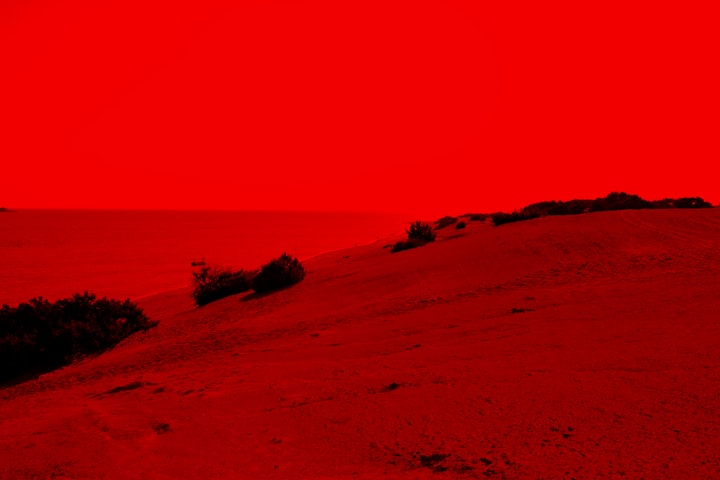
Ever wondered what Hitler used to gas the Jews and how it could link to modern-day food?
Ever wondered what it means to be organic and non-organic? Or has the debate gone sour?
Products are ever-growing their ingredients list, seemingly the more extensive the list, the smaller the price. But what are these extra freebies? Why do we eat non-organic food?
Many have heard the famous quote regarding organic foods, “it tastes just the same, it’s just more expensive.” But put aside taste, and focus on the chemical makeup of food, and you see what else is in your food.

WHEN THIS PESTICIDE WAS BORN
When did it become the norm to ingest chemicals that can be weaponised against us?
Against his own free will, Fritz Haber is the father of Zyklon B, a toxin used by the Nazis as a poisonous gas in the concentration camps.
In the agricultural world of good and evil, crops needed to perform better to meet a population's growing needs, those who always strive for more. So alongside many other chemicals, Fritz Haver introduced our food to the fertiliser.
“All the energy that went into fighting the enemies of the war, went into fighting the enemies of the farm.”
Thus, humanity being highly dissatisfied with the yield of crops, made a pact with the devil, exchanging their future for the pleasures of fast agriculture and fast food.
Was this the beginning of when food stopped being organic? To produce more regardless of the impact on our health and environment? Non-organic farming started a ripple effect that now is making headlines in the guise of climate change. It is not the sole reason for climate change, but it is a main contributor to why the panic is justified. So how does organic farming rise to meet the significant issues of climate change?

“BREAD FROM AIR” CONVENIENCE
Humanity is fed entirely on the small scraps of imitation that they no longer feed on Nature. They feel pampered by the alms of market and trade, an economic paradise. But when these cease to be, where now will food and aid be found. Many have no skill to go forth and live from the Land.
But when Homo Sapiens first emerged, there were no convenience stores; there was only hard work and grit. They had no choice but to work alongside the Land, who at the time was there superior. There was no mass-production of our favourite foods, only the hunting and gathering.
A few shortcuts later, and Sapiens have developed resiliency. The roles have reversed, and Nature now has to adapt to those who find themselves at the top of the food chain. Nature now shows us what happens when we play god. So do these costly shortcuts ever play upon the conscience?
When the price of convenience is world-ending, do we fall back to group mentality and feel liberated that we have leaders and experts who can make these tough choices?
Factory farming and agricultural farming have become somewhat of a horror film. Mother Earth is screaming out in pain, just as the animals of mass production squeal for their lives.
During World War two, the “dig for victory began.” People needed more food, so farming was supercharged. But now the charge is depleted, and the cost has caught up with the next generations.
Intensive farming becomes the answer to many problems. But in 2021, we face many of the consequences associated with those choices. Choices that have now formed into the unbreakable habits of convenience. They had a problem, and they found a solution. But the answer was to cover up the problem; they never thought to address the consequence.
But try taking convenience from an overworked mother and father of three children, and you see why convenience is coveted higher than health.
Convenience is not a bad thing, it is merely overwrought. Humanity would not have evolved to this state without the air of convenience. The problem is that the air we breathe, the air we need to survive is soon to prove rather inconvenient if we do not restore the ecosystems we have damaged.
“The very practices that heal our soils, will also heal our climate.”

SOIL/SOUL
When crops did not produce enough food, humans turned to fertilisers, pesticides, herbicides, etc. Poor farming techniques went against Nature and proved terrible for the environment. The soil that had held much of the carbon here on Earth now fell barren. These poor practices have shifted the carbon scale; the atmosphere is soon to be at a critical point.
The quality of food is perishing. Humanity is relying far more on artificial tastes that feature a strong palette of chemicals. Natural food is no longer the Muse, as convenience and stimulants are the new natural. Many tastebuds have been through the sugar wars and have been trained with military precision not to crave Health.
But there are ancient methods of working with the Land, not by overworking the soil, but by looking at how Nature grows its plants. Save the soil and store the Carbon; these steps undo the consequences so heavily wrought. The money in your hand is the seed of change. You can choose to return to the garden, or make haste to the local market. When the soil is good, the food tastes good.
The story of Pocahontas shows this dichotomy when the new world pillages the old. It offers vast differences in how humans can eat. But to what direction has this new world pressed us? A world where soon it will not be possible to grow food?
To return the world to a food-producing planet takes many hands and many strategies. There are many, but I watch keenly on the traction of regenerative farming and permaculture and see these methods grow in popularity as they restore ecosystems, replenishing the soil and insects alike.
The market can teach those who buy from it. When there is no modicum of profit, then health and taste take centre stage. If not, this carbon footprint will be a lot crankier than the Housewife with no food to serve at the dinner table.

ORGANIC SNOB
“Organic crops must be grown without the use of synthetic herbicides, pesticides, and fertilisers, or bioengineered genes (GMOs)”
Enter the purist who seeks clean foods.
The organic snob has been poked fun of, but a century ago, there was no such thing as non-organic fruits and vegetables, all of it was organic by default. So does that mean the old ways of farming keep the organic snob from living a little?
To every argument that folds this way, there are another ten that fold the other way.
The evolution of food shopping has changed; soon, perhaps food will do miraculous things, but with what consequence?
Is our health one of those consequences? The Environmental Working Group release a list of fruits and vegetables known as the Dirty Dozen list, steer clear, as there may be “elevated levels of pesticides that may be concerning.” As of 2020, strawberries, spinach, kale, nectarines, apples, grapes, peaches, cherries, pears, tomatoes, celery, and potatoes all show cause for concern.
Social class also plays his part here. Talking subjectively, I work at a trendy cafe/shop who sell organic, local, straight from the farm produce. But when that sweet potato meets the weighing scale, and the price appears into existence, my conscience does not like what it demands a well-meaning customer to pay. It causes the outright sensation of being cheated. No one then wants to buy organic because the price rage has a bad reputation. Not everyone can afford to eat organic.
And so, organic food is treated as a trend until education takes centre stage, and ignorance dwindles. Many people lose interest and just buy what is in front of them, lest they go out of their way to buy their favourite foods. But people like familiarity and they like their money to go a long way. It seems only the purists like their food organic unless it is a fashion statement.
Andy Warhol famously produced art that slapped us in the face. It forced us to question what now had become mundane, mass production. This new norm, displayed by the Campbell soup can, is the epitome of convenience. But he was showing us what was popular. We are used to immediate gratification: we want what we want, and we want it when we want it. Amazon has become pioneers in delivering our wants with the next sunrise, but in doing so, they too can cause unwanted damage to the environment through gas emissions, etc.
Humans like the immediate effect; they do not like to think of the long-term consequence for their pleasure.
This Ignorance is the King of Convenience, but education is the Knight in shining armour. Through educated action, we have the chance to restore the lands and banish the poison chalice. If not, the King will forever rule over a barren wasteland.

RED SHELL
Soon the Earth will be a shell of its former self; a tomb for all that was once human. As the hands of overwrought humans have carved it, this may be our downfall, making firm the lodgings of technology and convenience.
These chemicals spill over the edge of the field. They impregnate the produce; they give to the meat that finds slaughter; they are in the shopping trolleys as they exit the store. Side by side, they sit in the grocery store, organic or non-organic? Both with very different histories, both with very different motives.
“Unless we find a way to save our soils, we have sixty harvests left.”
So how would you like to die? Starvation, natural disaster, poison, cancer? This giving Earth will not give forever, not with the way it is treated, but the money you provide for the food you eat may determine how you die.
RESOURCES:
“The world-ending fire” by Wendell Berry
“Wilding” by Isabella Tree
“How to avoid a climate disaster” by Bill Gates
The biggest little farm (2019)
Kiss the ground documentary on Netflix
About the Creator
Francesca
So begin the tales.






Comments
There are no comments for this story
Be the first to respond and start the conversation.